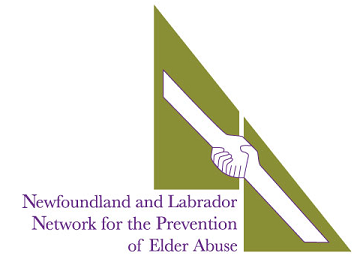Facilitate research to determine the true extent of Elder Abuse in our province, the effectiveness of any measures implemented to address it, and the impact of Elder Abuse on our Society.
If you are doing research related to elder abuse, please contact us at [email protected] so that we can highlight your work in this section.
------------
(Posted July 23, 2015)
Assessing the Knowledge of Elder Abuse Among Newfoundland and Labrador Family Physicians
[A call went out]...to invite all family physicians in NL to participate in a study…
Here is the introduction to the study as presented in 2015:
It is estimated that 4-10% of Canadians age 65 and over experience some form of elder abuse. We are interested in your professional knowledge and experience as a family physician regarding elder abuse.
About the study:
· 15 question online survey (approx. 10 minutes).
· The information collected will be confidential and kept for five years.
· If you decide to withdraw from the study, the information collected up to that time cannot be removed.
This study is being conducted by a first-year medical student at Memorial University of Newfoundland (MUN) in partnership with the NL Network for the Prevention of Elder Abuse/SeniorsNL and with support from Dr. Katherine Stringer, MUN.
To take the online survey, go to:
http://fluidsurveys.com/s/Elder-AbuseandFamilyMedicineKnowledge/
Surveys must be completed by August 31, 2015.
If you have any questions about taking part in this study, you can contact: Jennifer Smith by email at: [email protected]
Or you can talk to someone who is not involved with the study at all, but can advise you on your rights as a participant in a research study: Health Research Ethics Authority (HREA) 709-777-6974 or by email at [email protected]
------------
(Posted December 23, 2014)
Research on reducing the inappropriate use of anti-psychotic medications in LTC
At the Network’s Conference in October 2014, the need for more research on issues related to elder abuse and aging was highlighted. In addition, there was discussion in several sessions about the overmedication of seniors.
At the “Research to Practice” session of the conference, Rob Kean, Research Officer, NL Centre for Applied Health Research (CHRSP Project Coordinator) spoke about some of the work done at his Centre and mentioned a study on the best methods to reduce agitation and responsive behaviours in long-term-care residents with dementia. The study sought to answer the following question:
Other than use of physical restraints or prescription of psychotropic medications, what interventions, strategies, and/or practices have proven effective in preventing and managing agitation and aggression in long term care residents with dementia?”
The study is now available online at: http://www.nlcahr.mun.ca/CHRSP/DementiainLTC2014.php
------------
(Posted November 30, 2014)
National Seniors Council Report on the Social Isolation of Seniors
On November 24, 2014, the National Seniors Council released their Report on the Social Isolation of Seniors. In their press release, it was noted the report found that:
Social isolation touches many aspects of seniors’ lives, such as active participation, community engagement, healthy aging, income security and caregiving needs. Social isolation can lead to depression and increased vulnerability to elder abuse, among other concerns. The lack of supportive social networks is linked to an increase in the risk of dementia and cognitive decline.
The ministers recognize the importance of addressing the issue of social isolation, which affects seniors’ overall well-being and mental health. The NSC report provides a summary of the consultation findings as well as innovative and promising practices to help address this social problem.
The report can be found online at: http://www.seniorscouncil.gc.ca/eng/research_publications/social_isolation/page01.shtml
